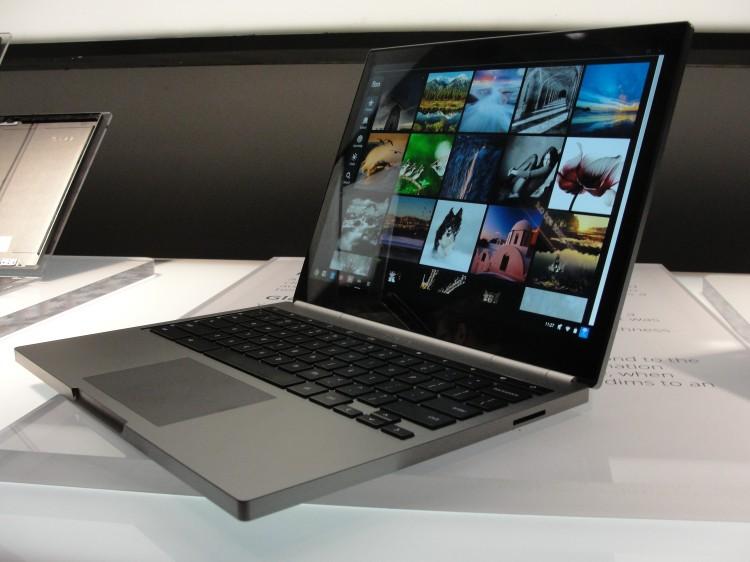With its Chromebook taking the number-one spot on Amazon’s list of top-selling laptops, Google decided to up the ante with a new and powerful machine known as the Chromebook Pixel.
The sleek-looking laptop’s name is a play on its top feature—it has the highest pixel density of any laptop screen available, according to a blogpost by Linus Upson, vice president of engineering at Google. He stated, “the goal of the Pixel is to make the pixels disappear, giving people the best web experience.”
The problem with the Pixel is its price. The WiFi version goes for $1,299, while a LTE version with a 4G connection goes for $1,449. That pits the Pixel against some of the best notebooks on the market, including the MacBook Pro and top-tier Ultrabook PCs. That wouldn’t be a problem were it not for the fact that—aside from its high-resolution screen—the Pixel is leagues behind the other notebooks in its price bracket when it comes to hardware.
To compare, the 13” Pixel gives you a 1.8GHz Core i5 processor, while the 13” Retina MacBook Pro—which is just $200 more—gives you a 2.5GHz Core i5 processor. The Pixel gives you 4GB RAM, the Mac gives you 8GB RAM. The Pixel has 32GB built-in storage, Mac has 128GB of ultra-fast flash storage. And while the Pixel has a 5-hour battery life, the Retina MacBook Pro has a 7-hour battery life.
While the Pixel does have a wonderfully high-resolution display, Apple’s Retina displays are close behind, and the regular user would be hard set to see the difference.
Google’s Chromebooks rely heavily on cloud computing. They are based on the idea of keeping a light operating system with cloud-based apps, no need for anti-virus software, and automatic software updates. While the extra peace-of-mind does have its value, it also means that if you require applications for work that aren’t based on the Web, you’re out of luck.
The Pixel also comes with a three-year subscription for Google Drive’s 1TB of online storage, but after three years—if you want to keep your data—you'll have to start shelling out $49.99 a month.
Just for perspective, if you’re willing to settle for a regular HD display, you can get a Dell Inspiron 15z Ultrabook with a touchscreen (which the Pixel also has), an i7 processor, 8GB RAM, and a 500GB hard drive for $1,099.
The Pixel is a great attempt on Google’s part to raise the bar for the Chromebook market. Yet with a $1,299 price tag, Google has dropped the Pixel in a price bracket filled with high-powered notebooks used by designers, tech-savvy users, and employees at large businesses who should be able to see at a glance that the true value of the Pixel doesn’t match its cost, and does too little to beat the competition.
But not everything is bad for the Pixel. If Google plays its cards right, it could do great things for the laptop market. Developers haven’t given much weight to screen resolution, and 1366x768 displays currently rule the markets. The Pixel’s 2560x1700 display is a major step forward that will hopefully give way to other companies giving more weight to resolution—especially with the new push for Blu-ray and HD picture quality.
Google will likely bring some much-needed attention to screen resolution. Since the screen resolution of the Pixel is its only excuse for its high price, Google will need to convince the market that a high-resolution display is something they'd want.
Aside from displaying text and other content with no visible pixels, a high-resolution display also gives you much more screen space by allowing browsers and applications to open in smaller windows.
The marketing team at Google will have their work cut out for them. The original selling point of the Chromebooks was to offer affordable, disposable notebooks. The Chromebook Pixel is a serious departure from that model, however, and if Google wants to follow the success of its current Chromebooks, it will need to cut the price of the Pixel to level the playing field.





